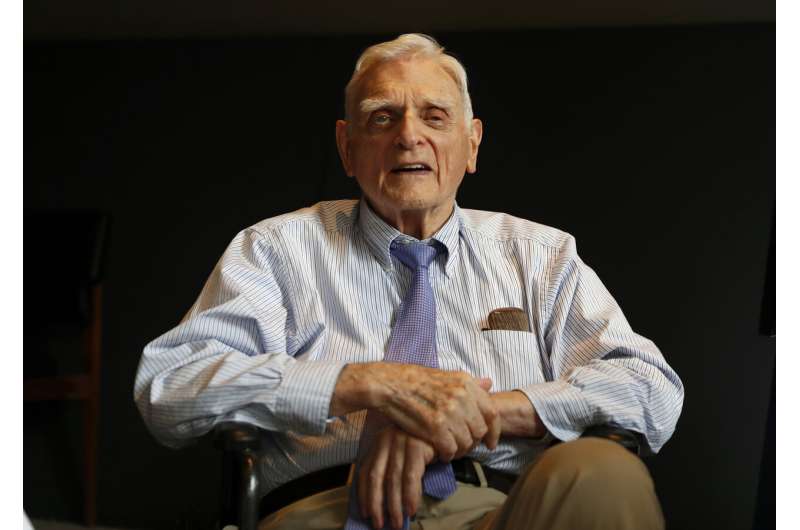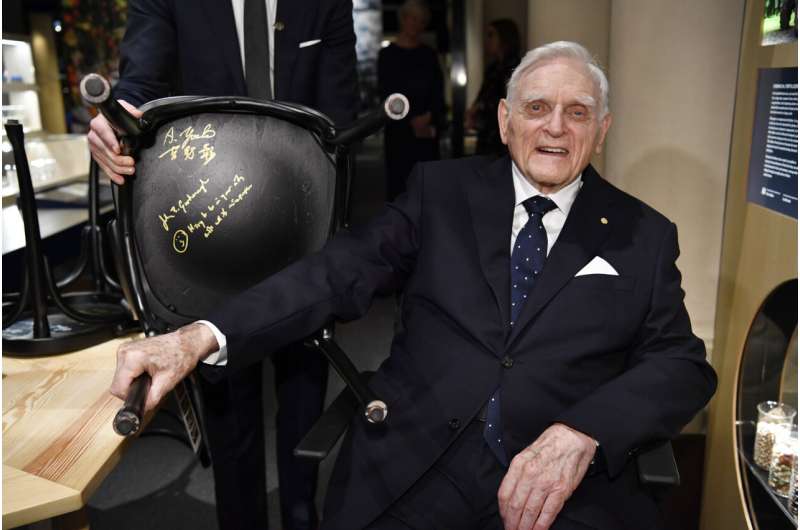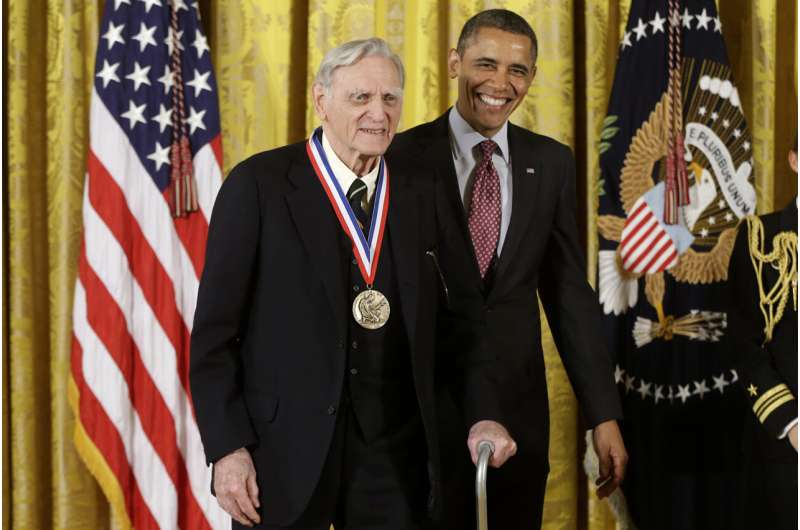John Goodenough, a Nobel Prize-winning co-creator of the revolutionary lithium battery, dies at 100

John Goodenough, who shared the 2019 Nobel Prize in chemistry for his work developing the lithium-ion battery that transformed technology with rechargeable power for devices ranging from cellphones, computers, and pacemakers to electric cars, has died at 100, the University of Texas announced Monday.
Goodenough died Sunday at an assisted living facility in Austin, the university announced. No cause of death was given. Goodenough was a faculty member at Texas for nearly 40 years.
Goodenough was the oldest person to receive a Nobel Prize when he shared the award with British-born American scientist M. Stanley Whittingham and Japan’s Akira Yoshino.
“Live to 97 and you can do anything,” Goodenough said when the Nobel was awarded, adding he was grateful he wasn’t forced to retire at 65.
And while his name may not ring a bell to most, Goodenough’s research helped unlock a revolution in technology now taken for granted in today’s world of portable phones, tablets and just about anything else with a plug-in port for a recharge.
Lithium-ion batteries were the first truly portable and rechargeable batteries, and they took more than a decade to develop. Whittingham said in 2019 that he had no inkling that his work decades ago would have such a profound impact on the world.
“We thought it would be nice and help in a few things,” Goodenough said, “but never dreamed it would revolutionize electronics and everything else.”

Goodenough, Whittingham and Yoshino each had unique breakthroughs that laid the foundation for developing a commercial rechargeable battery and the three shared the $900,000 Nobel Prize.
Whittingham’s work in the 1970s harnessed the tendency of lithium—the lightest metal—to give away its electrons to make a battery capable of generating just over two volts.
By 1980, Goodenough had built on Whittingham’s work and doubled the battery’s capacity to four volts by using cobalt oxide in the cathode, one of the two electrodes that make up the ends of a battery.
That battery remained too explosive for general commercial use. Yoshino’s work in the 1980s eliminated the volatile pure lithium from the battery and instead opted for lithium ions that are safer. The first lightweight, safe, durable and rechargeable commercial batteries entered the market in 1991.
Born in Jena, Germany in 1922, Goodenough grew up in the United States and earned a Ph.D. in chemistry from the University of Chicago. He began his career at the Massachusetts Institute of Technology, where his research laid the groundwork for development of random-access memory for the digital computer.

Goodenough was head of the Inorganic Chemistry Laboratory at the University of Oxford in England when he made his lithium-ion discovery. He joined the Texas faculty in 1986, and was still teaching and researching battery materials and solid-state science and engineering problems when he won the Nobel Prize.
Goodenough and his wife Irene were married 70 years until her death in 2016.
© 2023 The Associated Press. All rights reserved. This material may not be published, broadcast, rewritten or redistributed without permission.
Citation:
John Goodenough, a Nobel Prize-winning co-creator of the revolutionary lithium battery, dies at 100 (2023, June 26)
retrieved 26 June 2023
from https://techxplore.com/news/2023-06-john-goodenough-nobel-prize-winning-co-creator.html
This document is subject to copyright. Apart from any fair dealing for the purpose of private study or research, no
part may be reproduced without the written permission. The content is provided for information purposes only.
For all the latest Technology News Click Here
For the latest news and updates, follow us on Google News.
